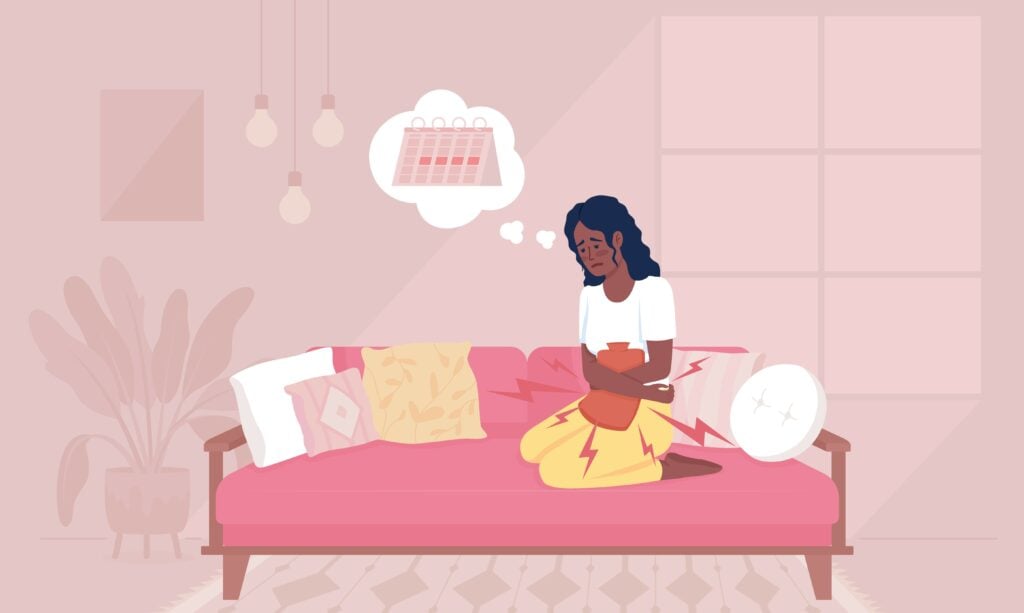How hormones affect your mental health
Reviewed by Robert Bogenberger, PhD


This may sound strange, but I can actually feel when my hormones are off. For instance, when I’ve had too much sugar, I can sense a chemical-like shift taking place in my bloodstream, like a wave rolling through my whole body.


I didn’t pay much attention to my hormones when I was younger, but over the years I’ve learned that they have a huge impact on mental health as well as physical health. Here’s some of the wisdom that has helped me understand the benefits of hormone balance.
Hormones: The chemical messengers of our bodies
Hormones are chemicals that travel through the bloodstream, carrying messages to different organs and giving them instructions on how to behave. The hormones we tend to hear about most often include:
- Estrogen and progesterone, two of the primary female sex hormones, help control menstruation and pregnancy.
- Testosterone, the primary male sex hormone, helps control libido, muscle building, and more.
- Glucagon, cortisol, and adrenaline (and other “stress hormones”) help regulate blood sugar levels and your response to stress.
- Insulin helps your body absorb and process sugar (glucose) from food.
- Thyroid hormone helps your body run at an efficient speed and affects energy and weight.
- Growth hormone helps your body heal, develop, and grow.
Gender and hormones
People of all genders have the same hormones, but at different levels. This has some important implications for mental health.
Cisgender women are at higher risk of mental health conditions than men, usually starting around puberty and peaking during childbearing years due to fluctuating estrogen and progesterone levels throughout the menstrual cycle.1 But when they reach menopause and their estrogen levels drop, they tend to be at a similar risk as men.
Cisgender men are less likely to be diagnosed with mental health disorders than women until they reach middle age. This may be due to the fact that testosterone levels tend to decrease with age, which can lead to low energy, fatigue, anxiety, and depression.2
Transgender people undergoing gender-affirming hormone therapy tend to benefit emotionally in the short term, though the long-term health effects have not been studied thoroughly.3
The balancing act of hormone health
When our hormones are balanced, we tend to feel good overall: optimistic, alert, and clear-minded. We also have less trouble focusing on tasks, learning new things, and managing everyday stressors.
But when our hormones are out of balance, we tend to feel “off,” and the effects can be tough to handle. For example, we might experience:
- Obsessive or negative thoughts and feelings
- Irritability
- Anxiety
- Depression
- Mental fatigue or sluggishness
- Trouble focusing and concentrating
- Memory loss, forgetfulness, and trouble making decisions
- Feeling overwhelmed by stress or unable to cope with change or uncertainty
- Obsessive or negative thoughts and emotions
- Difficulty feeling, expressing, and managing negative emotions such as anger or sadness
- Insomnia or trouble sleeping
What causes hormone imbalances?
Hormone imbalances often stem from unhealthy lifestyle habits such as poor nutrition, lack of exercise, and excess stress. But other factors can also throw off your hormones.
Environmental toxins, which many people tend to overlook, can contribute to hormone imbalances. We ingest, inhale, and apply many substances to ourselves and our skin every day. Bisphenol-A (BPA), for example, is a toxin that disrupts normal estrogen function. It’s found in plastics, the lining of food cans, and even cash register receipts.
People who take medication, are pregnant or breastfeeding, or have a preexisting health condition may also be more likely to struggle with hormone imbalances. Conditions such as hypothyroidism, hyperthyroidism, and diabetes are a few known contributors.
Lastly, age plays a role in certain aspects of hormone balance. As we grow older, levels of certain hormones naturally decline.
How to balance your hormones
Balancing hormones can be tricky because they’re influenced by so many different factors all the time. If you’re a generally healthy person, though, making some simple changes to your everyday behavior might be enough to restore balance. Here’s where to start:
Eat whole foods. Foods that are rich in nutrients, minimally processed, and in their natural form are best for giving your body what it needs to produce healthy hormones.
Limit sugar and refined carbs. Foods that are heavily processed or sweetened with sugar can cause inflammation and blood sugar fluctuations, leading to hormone imbalances.
Focus on fiber. Soluble fiber, particularly in the form of fruits and vegetables, can help regulate insulin function by slowing down digestion.
Avoid or limit alcohol. Alcohol is known to impact serotonin levels, which affect your mood and sleep patterns. Many alcoholic drinks are also full of sugar.
Beware of toxins. Choose organic foods, glass instead of plastic, and chemical-free products whenever you can.
Keep yourself moving. Exercise helps boost serotonin and dopamine levels in the brain, which can help improve mood and reduce stress.
Get enough sleep. Proper rest is necessary for the body to regulate hormones effectively. Aim for seven to nine hours of sleep every night.
Maintain a healthy weight. Excess fat cells release estrogen, which can have a negative impact on hormone balance. But it’s important to remember that a healthy weight looks different for everyone, and there’s no magic number to strive for. Instead, focus on building a healthy body image by including nutrition, exercise, and stress relief in your self-care routine.
Manage your stress. Chronic stress causes a spike in cortisol, which can interfere with reproductive and thyroid functions.
Keep a journal. Each day, write down your symptoms, what you ate, how much you exercised, how much you slept, and how you’re feeling. By keeping track of your daily habits and your mood state, you can get a sense of what might be contributing to hormone imbalances. Mental health apps like Moodfit make it easy to track your habits on your phone.
If adapting your habits isn’t enough to help restore your hormone balance, you may need to be assessed for possible medical conditions. In some cases, a doctor may prescribe hormone replacement medication.
Another option is to take a holistic approach by meeting with a natural health practitioner who specializes in hormone health. Even if you don’t have a preexisting medical condition, this type of professional may be able to help you identify lifestyle factors that could be contributing to hormone imbalances.
Balance looks different for everyone
Our hormones are in flux constantly, and because every body is different, there’s no guaranteed way to restore balance.
The best you can do is tune in consistently to the subtle signs your body is giving you, stay conscious of your habits, and seek help from a therapist as needed. It all takes effort, but your hormones—and your overall mental and physical health—will thank you.

Sources
About the author
Elise Burley is a member of the therapist.com editorial team. She has more than a decade of professional experience writing and editing on a variety of health topics, including for several health-related e-commerce businesses, media publications, and licensed professionals. When she’s not working, she’s usually practicing yoga or off the grid somewhere on her latest canoe camping adventure.
Related articles

The menstrual cycle and mental health
Your menstrual cycle and mental health are connected by a variety of hormone...

Dads get postpartum depression, too
We tend to connect PPD with the person who gives birth, but it can happen to...

Sex, intimacy, and mental health
Safe, consensual sex between adults is a normal, healthy part of life. Learn...

